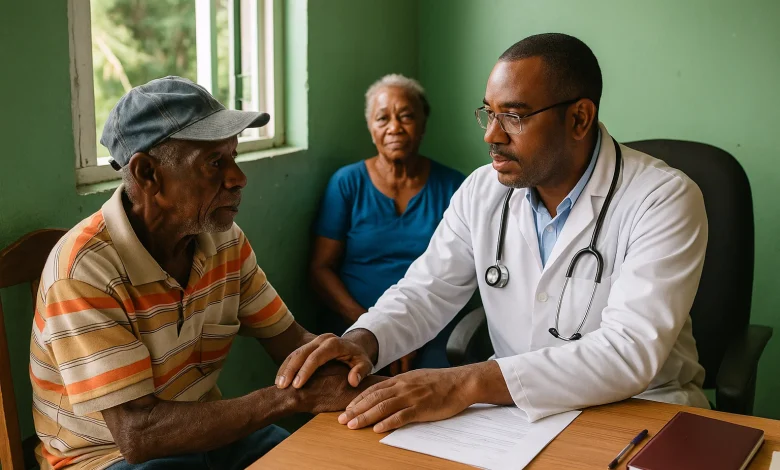District Medical Officer in Dominica

A District Medical Officer (DMO) is a public health physician appointed under the Public Health Act, 1968 to oversee medical and preventive health services within a designated health district. The DMO operates as part of the District Health System, coordinating clinical, preventive, and surveillance efforts at the local level.
Institutional & Legal Basis
Under the Public Health Act, 1968, “officer” includes District Medical Officers along with Medical Officers of Health, Public Health Nurses, Inspectors, and others. Through this legal framework, the DMO is empowered to execute regulatory and public health functions delegated by the Minister or Chief Medical Officer.
Each health district comprises a hub facility (district hospital or health centre) and primary health clinics. District health teams include medical officers (including DMOs), nurses, community health aides, and environmental health officers.
Functions & Responsibilities
The key responsibilities of a DMO typically include:
- Overseeing the delivery of medical and public health services in the district (clinical care, outreach, maternal & child health).
- Leading surveillance, outbreak response, and disease control efforts for communicable and noncommunicable diseases.
- Coordinating with public health, environmental health, nursing, and health promotion staff.
- Ensuring implementation of national health policies, standards, protocols, and preventive programs (immunization, screening, sanitarian inspections).
- Supervising health centers, clinics, and community outreach programs, ensuring quality of care.
- Reporting upward to the Chief Medical Officer or Ministry of Health on indicators, resource needs, and performance.
- Engaging with communities, local leadership, and stakeholders to promote health education, behavior change, and community support.
Significance & Impact
The DMO role is crucial for bridging national health policy with local service delivery. In geographically dispersed and rural settings, the DMO helps ensure equitable access to care, early detection of outbreaks, and adaptation of interventions to local contexts. Because the DMO functions inside the district health team, their decisions influence the effectiveness of primary, preventive, and referral care.
Challenges & Considerations
- Resource constraints: limited diagnostic labs, medicine stocks, transport and logistics in remote districts.
- Infrastructure damage: health centers often suffer from hurricane or storm damage, requiring resilience planning.
- Human resources: attracting and retaining qualified physicians for district roles can be difficult.
- Balancing clinical and administrative roles: DMOs must juggle leadership, supervision, and occasional direct care.
- Data and monitoring: ensuring reliable data flows from clinics and outreach units is essential for planning and response.




